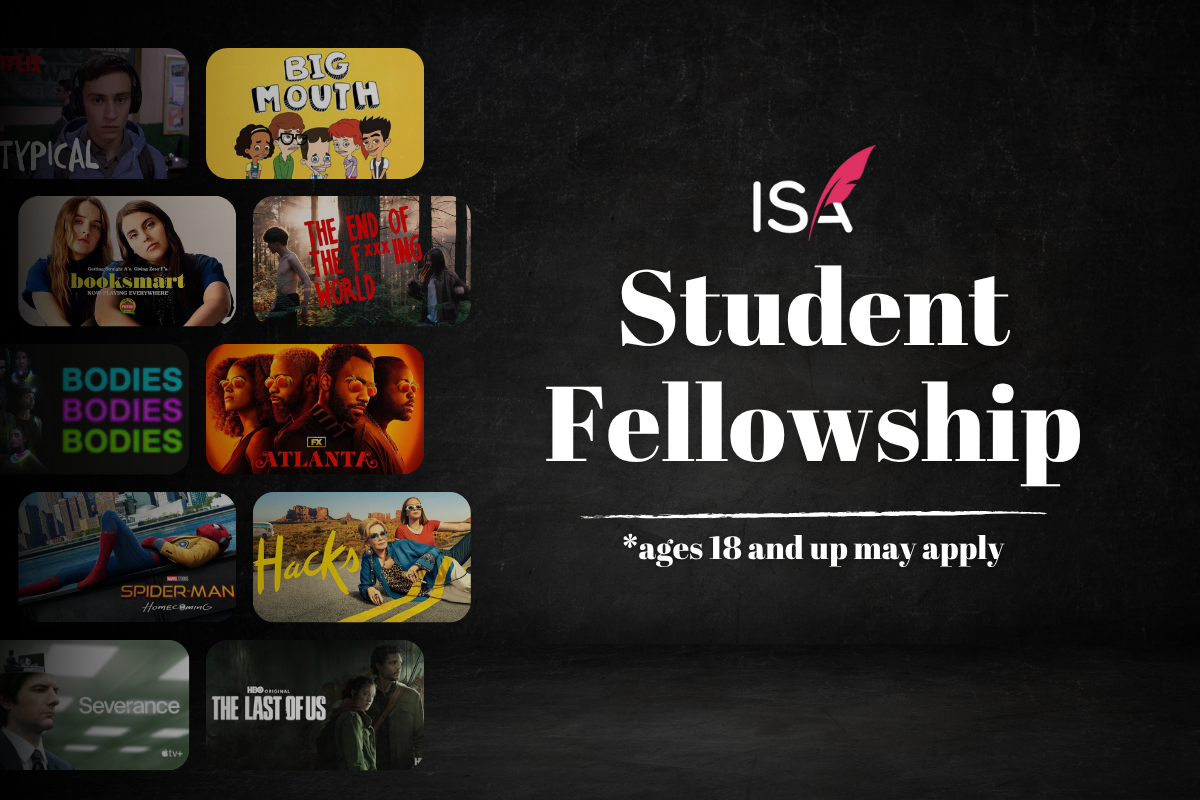Screenwriting is Easy (and Other Lies)
With all the free “screenwriting advice” floating around the Internet, professional screenwriter Bob Saenz debunks some of the worst career advice he’s seen lately.
Over the last few weeks, probably because everyone is home and needs an outlet of some kind, a bunch of screenwriting advice / rules have been thrown around social media. I’d like to address some of it. But first…
When taking said advice, it behooves (always wanted to use this word someplace) the recipient of said advice to check out who exactly is gifting this sage knowledge onto the interweb. This is where IMDb and web searches can be your friend. You owe it to yourself as a writer to check out if this advice is coming from someone who has benefited from it themselves or is speaking from parts of their body best left unsaid. Do your due diligence, just like you would with any producer or rep you would work with. Find out who they are, what they’ve successfully done in the past, and how they fit with your style and genre. It’s important and can save you a lot of wasted time and maybe a lot of pain and disappointment. Hey, I’m giving advice here. If you don’t know me, look me up.
OK… in the last month I have seen this advice:
Networking with Producers is a Waste of Time
Wait. What? This tops my list of the worst advice ever. Trying to USE producers to further your career is a waste of time because they see right through that, but real networking isn’t "using" anyone. It’s the sincere building of personal relationships that can lead to working relationships over time. Anytime you can meet or get to know producers or reps socially, whether in person or online, it’s a very good thing. I’ve gotten films made this way. You have to be smart and honest.
If you just believe in yourself you will succeed.
Well, there’s a small grain of truth here. Very small. You do have to be confident in your work. But… your scripts also have to be good. That is not easy. You also have to do all the incredibly hard work, research, marketing, and networking it takes. You can succeed, but sitting around basking in your self-worth isn’t the way. The road is long, but every day new writers are getting noticed. They got there by writing great scripts with unique voices and then withstanding the rejection after rejection and not giving up. They also kept working at it relentlessly. Here’s the awful truth, not everyone succeeds and honestly, with the hundreds of thousands of scripts out there, the percentage of success is pretty low. Doesn’t mean YOU can’t, but it’s NOT easy and will not happen on your schedule. Just believing in yourself isn’t enough.
You won’t succeed until you get an agent.
The truth about this one? You most likely won’t get an agent until you succeed. And you can succeed without one. I did for many years. So did many of my friends. Most successful writers built a track record before agents came out of the woodwork chasing them. It took, again, the hard marketing work to get their projects out there and read by producers, optioned and sold, and then made as independent films. Agents rep careers. They want you when you have one. You can establish yourself before you have an agent. Long road, but every successful writer traveled that same road.
Don’t call yourself "aspiring." If you write screenplays, you're a screenwriter. Just an unsigned one.
Unsigned? Nobody in the public cares whether you’re signed by anyone. I’ve said this many times before and lived it when I was first starting out and happily told people I was a screenwriter. Their first question was, “What have you written I would have seen?” because EVERYONE asks that. When the answer is, “Well, nothing really, but I’m talking to producers, and…” their eyes glaze over because they know you’re not really a screenwriter yet, but trying. They have one frame of reference. Something they can see or have heard of. I stopped telling people I was a screenwriter until I had some success and started making money at it. It saved a lot of glazed over eyes and nods and the question, “So what’s your real job?” I know it’s hard not to want to tell strangers you’re a screenwriter because it sounds so cool, but resist. Especially while networking. When you tell someone you’re a screenwriter, they assume you’re a working screenwriter. Human nature. When you have to tell them you’re not, they see you in a different light. So, telling people in the industry the truth is always a good thing. Which leads to the next bad advice.
You can BS about anything. If they ask if you can do something you can lie and then go try and learn it.
This is a good way to get a writing job, then never work ever again. Don’t ever lie to anyone, about anything ever. You will ALWAYS get caught. It’s a smaller industry than you think. Don’t say you know someone you don’t. They check. I once had a manager ask me what producers I could use as a reference and I gave him a few real names. One he didn’t believe. He called them all. They all gave me glowing reviews (thank God) and he took me on. I fired him a month later, but he did check. You can’t lie about projects you worked on. They will check, or worse, they might have worked on that project and know you didn’t. Don’t say you worked with someone you haven’t. You can’t lie about your experience. Being honest will build trust. Lying, even one time, destroys it. Twice, I’ve had producers call me saying writers contacted them saying I’d referred them. Didn’t know either of them. Don’t do this. Again, they check.
Query letters don’t work, don’t waste your time.
Yes, they do. You just have to write a good one and find that producer or rep that it resonates with. I have a friend who has sold four scripts through direct producer queries, so they do work. His query letters rock. Short, sweet, to the point. Producers and reps have continued to leave the query avenue open to get to them. Not using it would be shortsighted. Yes, the percentage of reads it low, but that’s because they get thousands of queries a month. They do read the scripts they ask for, so it is another way to get noticed and repped or optioned. You should use every avenue you can. Don’t discount any of them. Use my rules of marketing: You can do anything as long as it’s not Illegal, Immoral, or Stupid.
A logline has to be 25 words or less or they won’t read it.
Ok… let’s think about this. You think producers COUNT THE WORDS before they read a logline? I have a bridge for sale, anyone who believes producers count the words in loglines please contact me for the bridge price. Wow. I have no idea where some of this stuff comes from, but c’mon. Yes, keep it as short as you can, but 30 to 40 words works. Two sentences works, too, if you want. If they love it, it doesn’t matter. Why handicap your good story by a word count. Short, sweet, but complete. Best way to do it.
And finally: (and I saw this one yesterday)
You can write into your contract that they can’t change your script without your approval.
You can write it in your contract. That’s true. They won’t sign it. That’s also true. Even if they love your script, they will walk away if you try and do this. And not even look back. STOP thinking your script is so good that it can’t be changed. Stop it. If you want to be a screenwriter you have to let go of this idea forever. Every script gets changed. Mostly NOT by the original writer. No producer on this earth will agree to that. Not one. Even the bad ones.
Remember, look at all advice with side eyes. Check out who’s giving it. The Internet makes it very easy. Just because it’s something you want to believe doesn’t make it true.
For more great advice on a screenwriting career, check out Bob's book, That's Not the Way It Works
Bob Saenz is a screenwriter, author, and actor. His written and produced screen works include Hallmark’s “Help for the Holidays,” “Rescuing Madison,” “Sweet Surrender,” “On the 12th Day of Christmas,” “Sound of Christmas,” “The Right Girl,” “Christmas in Love,” the theatrical “Church People,” and the dark-comedy thriller “Extracurricular Activities.” He does rewrites and polishes on film and TV projects for producers and production companies. He's the author of the screenwriting book, That's Not the Way It Works: A no-nonsense look at the craft and business of screenwriting. His acting roles include a six-year recurring character run on the TV show “Nash Bridges,” Hallmark’s “Valley of Light,” Francis Ford Coppola’s “Jack,” David Fincher’s “Zodiac,” Finn Taylor’s “Unleashed,” “Church People,” and “The Village Barbershop,” among dozens of others. He was a radio DJ on KYCY in San Francisco, played the last 10 years in the ’60s rock band The BSides, and has done voice work on video games, documentaries, and commercials. Twitter: @BobSnz







